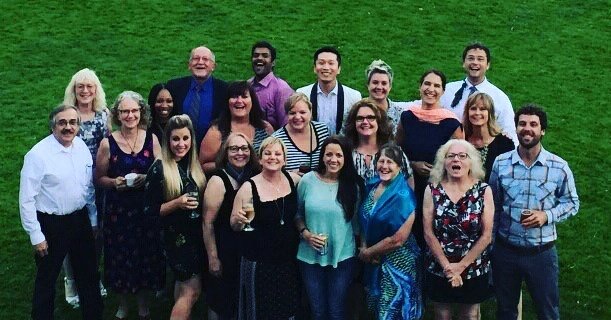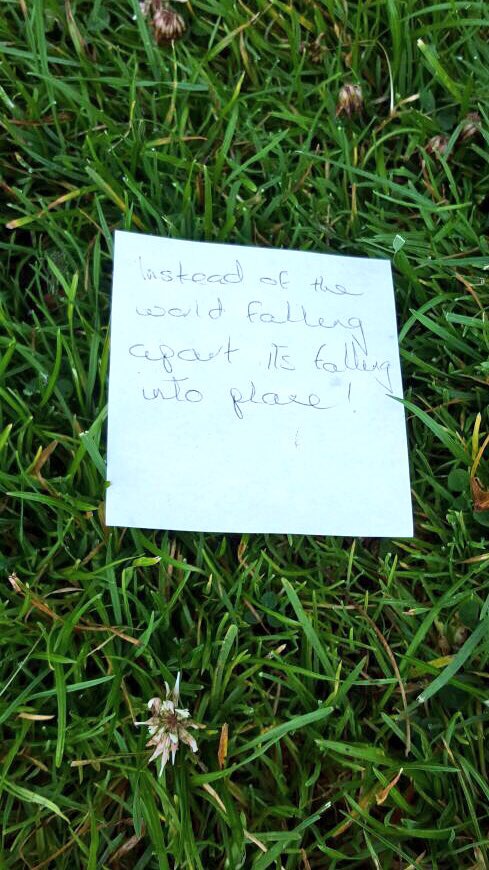Residency was an incredible opportunity for me to jump outside of my comfort zone and join an amazing group of people on an adventure!
I INTRODUCE YOU ALL TO: drum roll please….

Royal Roads MALAT!
An amazing experience that filled me with so much gratitude and love ❤
I know what you’re going to ask…
What really happens when you get home from residency and the sadness of missing everyone starts to sink in?
How do you cope once your back to your (as we liked to refer to it) “REAL LIFE” and no longer in the RRU dorms being awoken by mating peacocks?
Well to start, you sleep….and sleep….and sleep….and yes, SLEEP!!
zzzzzzzzzzzzzzzzzzzzzzZZZZZZZZZZZZZZZZZZZZZZZZZZZZZZZZZZZZZZZZZZZZZZZZZZZ
Then COFFEE… LOTS of coffee to get you tackling those remaining assignments!

Then you set up your MALAT workshop at home, filled with things that remind you of the amazing castle and people you called home for two incredible weeks.
Then you try to find supportive critical friends within your own home…
however; this might not have worked out so well…
so you try to recreate the magic of Habitat’s ORBS…
then you spend copious amounts of time (which you don’t have) on WhatsApp, talking to the people you miss SO MUCH…

So much so that you engage in an online face-to-face conversation to hear those lovely voices and see those beautiful faces again!

Once you get your fill, you sign off and hold tight to those incredible rocks we wrote on during our last day…
And you remember this:

Anyways, that’s how I cope without you…I know things are falling into place ❤
Don’t worry though…
online learning will keep us together!
I miss you all!
Ready for our next adventures together… after some fun in the sun first!
Until next time…
~ Kim































